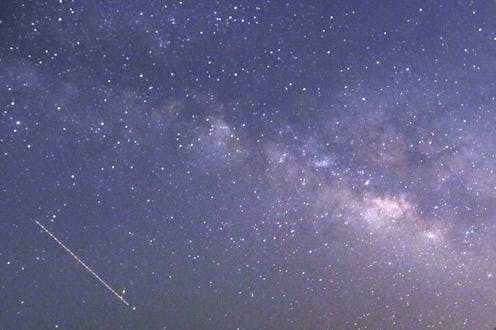Scientists announced Thursday that they have proven the existence of gravitational waves, lending validity to the most controversial proponent of Einstein's theory of relativity. Gravitational waves are ripples that affect the space-time fabric of the universe and are caused when two black holes, for example, collide into one another. Being able to identify the waves helps physicists better determine the nature of black holes, the mind-boggling regions of space where gravity prohibits even light from escaping. Evidence of these gravitational waves came in the form of audible "chirps" that were picked up by vibrating antennas in Washington and Louisiana. Members of the Laser Interferometer Gravitational-Wave Observatory (LIGO) and Europe's Virgo Collaboration authored a report on the discovery that was published Thursday in Physical Review Letters. The LIGO project was founded by scientists from Caltech and MIT and funded by the National Science Foundation.
Szabolcs Marka, a Columbia University professor and LIGO scientist, explained how the auditory nature of the discovery sets it apart from others.
I think this will be one of the major breakthroughs in physics for a long time. Everything else in astronomy is like the eye. Finally, astronomy grew ears. We never had ears before.
In an interview with CNN's Rachel Crane, Marka likened the waves to a "cosmic microphone" and emphasized that the possibilities for new, related discoveries are endless.
Gravitational waves, when we discover them, will open a new window on the universe. We will be able to study not just Einstein's general relativity -- we'll be able to find objects we only imagined would exist. We should see a universe that has never been observed before.
The LIGO team went into detail describing the implications of these gravitational waves on their online FAQ forum. According to the physicists, these little chirps, which reach a middle C note, could reveal a fuller picture of the universe's earliest days over 13 billion years ago.
Gravitational waves will also tell us about how many objects like black holes and neutron stars exist in the Universe. They will give us insight into what happens during some of the Universe's most violent explosions such as supernovae and gamma ray bursts. Someday, gravitational waves might even allow us to listen to what was happening in the earliest moments of the Universe when it was so dense and hot that no light could move around.
A century after Einstein proposed the theory, the existence of gravitational waves is finally being verified and the uncertainties that once rendered his theory of relativity problematic are being perceived as new avenues for incredible discoveries.
